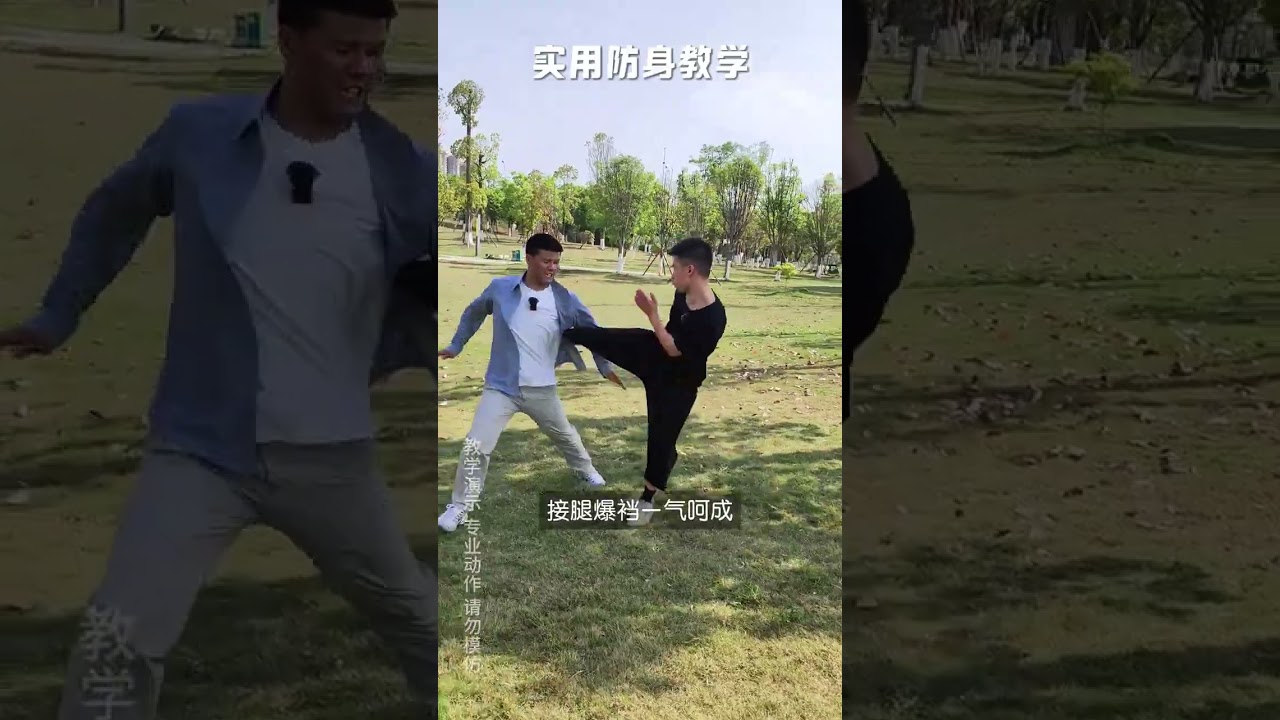Womens Self Defense
Exploring the Ethics and Impact of Self-Defense in the Courtroom

Self-defense is a fundamental right recognized in most legal systems around the world. It allows individuals to protect themselves from harm when faced with a threat of violence. However, the concept of self-defense is not without controversy, especially when it comes to its application in the courtroom.
In recent years, self-defense cases have garnered significant attention in the media, with high-profile cases such as the shooting of Trayvon Martin and the trial of George Zimmerman sparking heated debates about the ethics and impact of self-defense in the legal system.
One of the key ethical considerations in self-defense cases is the use of deadly force. In most jurisdictions, individuals are only justified in using deadly force if they reasonably believe that their life is in imminent danger. This standard is often subjective and can be difficult to prove in court. Critics argue that this subjective standard allows for the potential abuse of self-defense laws, particularly in cases involving racial bias or excessive force.
Furthermore, the impact of self-defense cases extends beyond the courtroom and into the broader societal conversation about violence and justice. The outcomes of self-defense cases can have far-reaching consequences, influencing public perceptions of law enforcement, race relations, and the right to self-defense.
In some cases, self-defense claims have raised questions about the criminal justice system’s ability to protect marginalized communities. For example, studies have shown that Black individuals are more likely to be perceived as threatening in self-defense situations, potentially leading to disproportionate levels of violence against them. This disparity highlights the need for a critical examination of how self-defense laws are applied and interpreted in different contexts.
Additionally, the impact of self-defense cases on victims and their families cannot be overlooked. While self-defense laws provide a legal mechanism for individuals to protect themselves, they can also lead to emotional and psychological trauma for all parties involved. The public scrutiny and media attention that often accompany self-defense cases can further exacerbate the trauma experienced by victims, creating a complex and challenging environment for healing and justice.
In conclusion, exploring the ethics and impact of self-defense in the courtroom is a multifaceted and important task. While self-defense laws play a crucial role in protecting individuals from harm, they also raise complex questions about justice, bias, and power dynamics within the legal system. By critically examining self-defense cases and their implications, we can work towards a more equitable and just society for all individuals.
Womens Self Defense
One Punch Man #Selfdefense #Womens selfdefense #Defeat the enemy with one move #Selfdefens
Womens Self Defense
Your Ultimate Guide to Personal Safety Products: What You Need and Why

Absolutely! I’m excited to help you on this journey. Just let me know the title of the article, and I’ll dive right in!
Womens Self Defense
The Importance of Transparency: Leveraging Duty to Disclose as a Legal Strategy

In an increasingly complex and interconnected world, the concept of transparency has never been more critical. Whether in business, governance, or interpersonal relationships, transparency fosters trust, accountability, and informed decision-making. In the legal realm, the duty to disclose has emerged as a powerful strategic tool that can shape outcomes in litigation, regulatory compliance, and corporate governance. This article explores the importance of transparency and how leveraging the duty to disclose can serve as an effective legal strategy.
What is Duty to Disclose?
The duty to disclose refers to the legal obligation of individuals or entities to provide pertinent information to other parties. This obligation varies by context—ranging from statutory requirements in corporate law to ethical considerations in professional sectors such as law and medicine. The duty can arise from contracts, fiduciary relationships, or statutory requirements and serves as a safeguard against deception and misinformation.
Legal Context
-
Corporate Governance: Publicly traded companies are required by securities laws to disclose material information that could influence investors’ decisions. This obligation helps maintain market integrity and protects against fraud. Failure to disclose can result in severe penalties, including fines and loss of reputation.
-
Litigation: In civil litigation, the doctrine of full disclosure requires parties to reveal evidence that is relevant to the case, even if it may be detrimental to their position. Courts impose these obligations to promote fairness and prevent hiding critical evidence that could skew the trial’s outcome.
- Regulatory Compliance: In areas such as environmental law, healthcare, and finance, regulatory bodies enforce strict disclosure requirements. Organizations that transparently report their activities not only comply with regulations but also enhance their credibility and bolster public trust.
The Strategic Value of Transparency
-
Building Trust and Credibility: Transparency is foundational for establishing trust with stakeholders—whether they are customers, investors, or the public. Companies that embrace transparency are often perceived as more ethical and responsible, strengthening their brand image and customer loyalty.
-
Mitigating Legal Risks: By proactively disclosing information, organizations can mitigate legal risks. Transparency acts as a shield against allegations of fraud or negligence, as it demonstrates a commitment to fairness and accountability. For instance, if a company openly reports a product defect, it may avoid punitive damages that would arise from concealing such information.
-
Enhancing Decision-Making: Transparent communication facilitates informed decision-making among stakeholders. Investors equipped with clear and comprehensive information can make better judgments about their involvement with a company, leading to more stable business relationships.
-
Fostering Positive Relationships: In any legal setting, transparency in negotiations can lead to improved relationships between parties. When both sides understand each other’s positions and concerns, they are more likely to reach amicable resolutions, reducing the need for prolonged litigation.
- Creating Competitive Advantage: In a crowded marketplace, businesses that prioritize transparency can differentiate themselves from competitors. Consumers increasingly favor companies that practice honesty and openness, often opting to support brands they perceive as trustworthy.
Challenges to Transparency
Despite its benefits, achieving transparency can be challenging. Organizations may fear that revealing certain information could diminish their competitive edge or expose them to liability. Additionally, cultural norms in some industries may prioritize confidentiality over openness, creating resistance to transparency initiatives.
To overcome these challenges, entities should create a culture that values transparency, establishing guidelines and training programs that reinforce the importance of disclosure. Leadership must exemplify transparency in their actions, encouraging employees at all levels to embrace open communication.
Conclusion
In today’s legal environment, the importance of transparency cannot be overstated. Leveraging the duty to disclose as a strategic legal approach not only enhances compliance and mitigates risks but also cultivates trust and strengthens relationships with stakeholders. Organizations that prioritize transparency position themselves for long-term success, navigating the complexities of the modern landscape with integrity and resilience. By fostering a culture of openness and accountability, they can lead by example, proving that transparency is not just a legal obligation but a fundamental pillar of ethical business practice.
-

 Womens Self Defense11 months ago
Womens Self Defense11 months agoNew Legislation Empowers Women to Defend Themselves
-

 Self Defense News1 year ago
Self Defense News1 year agoShe was convicted of killing her abusive boyfriend. Now a Maple Grove woman is home awaiting a new trial.
-

 Self Defense News1 year ago
Self Defense News1 year agoSelf-Defense for All: The new Gracie Jiu-Jitsu Pasadena is for everyone | Online Features
-

 Womens Self Defense1 year ago
Womens Self Defense1 year agoTop 5 Self-Defense Techniques Every Woman Should Know
-

 Womens Self Defense7 months ago
Womens Self Defense7 months agoUnderstanding State-by-State Variation in Self Defense Laws
-

 Womens Fitness1 year ago
Womens Fitness1 year agoXtreme Bodyweight HIIT (Lots of Jumping!) | Joanna Soh (Fio Series)
-

 Womens Preparedness1 year ago
Womens Preparedness1 year ago10 essential skills for surviving in the great outdoors
-

 Womens Preparedness1 year ago
Womens Preparedness1 year agoEmpower Yourself: A Guide to Female Survival Planning






